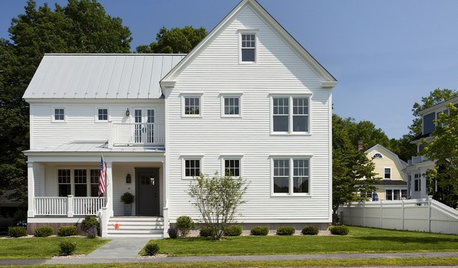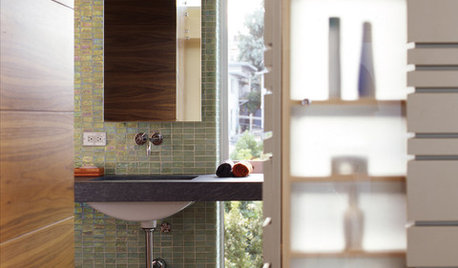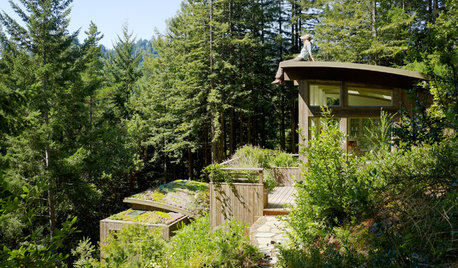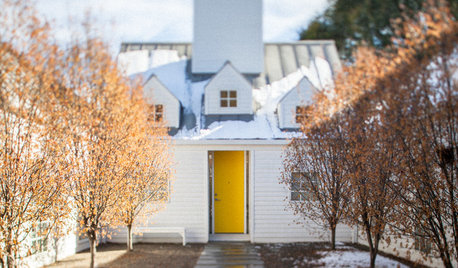Green tags?
rudysmallfry
18 years ago
Related Stories

DIY PROJECTSHoliday DIY: Mason Jar Forced Bulbs and Evergreen Gift Tags
Learn how to make these winter projects from the book ‘Garden Made’ by Stephanie Rose
Full Story
HOUZZ TOURSHouzz Tour: The Concord Green Healthy House
New home built for efficiency and flexibility finds its place in historic New England neighborhood
Full Story
KIDS’ SPACESEasy Green: The Ecofriendly Nursery
Going green in the nursery isn't as hard as you may think, with more options than ever for ecofriendly furniture, floors and paint
Full Story
KITCHEN DESIGN2012 Color Trends: Touch of Green for Kitchen and Bath
See how green can serve as both an accent color and new kind of neutral
Full Story
REMODELING GUIDESLiving Roofs Crown Green Design
Living roofs save energy, improve air, water, curb appeal — and the view from above doesn't hurt either
Full Story
HOUZZ TOURSMy Houzz: A Master’s Design Goes Green and Universal
Adapting $500 house plans in Pittsburgh leads to planned Platinum LEED certification and better accessibility for one of the owners
Full Story
ACCESSORIESEasy Green: Cut Electricity Use With 15 Unplugged Home Devices
Crank up the energy savings, courtesy of household items that come into power the old-fashioned way: manually
Full Story
HOUSEKEEPINGEasy Green: Steam Cleaners for a Chemical-Free Sparkle
Deep clean and sanitize by harnessing high-temperature water for floors, curtains and clothes as immaculate as they are healthy
Full Story
GARDENING GUIDESThe Art of Green Mulch
You can design a natural garden that doesn’t rely on covering your soil with wood and bark mulch
Full Story
PRODUCT PICKSGuest Picks: Get Your Green Thumb on With Gardening Gear
Go for growth with gardening tools and accessories that make yard or windowsill plantings a breeze
Full Story





RCMJr
rudysmallfryOriginal Author
Related Professionals
Benicia Solar Energy Systems · Hemet Solar Energy Systems · Rialto Solar Energy Systems · Woodland Hills Solar Energy Systems · Franklin Solar Energy Systems · Colorado Springs Home Builders · Lakeland South Home Builders · Salem Home Builders · West Jordan Home Builders · Minneapolis Roofing & Gutters · Phoenix Roofing & Gutters · Sand Springs Roofing & Gutters · Summit Roofing & Gutters · West Orange Roofing & Gutters · Wilmette Roofing & Gutterslazypup
RCMJr
bry84